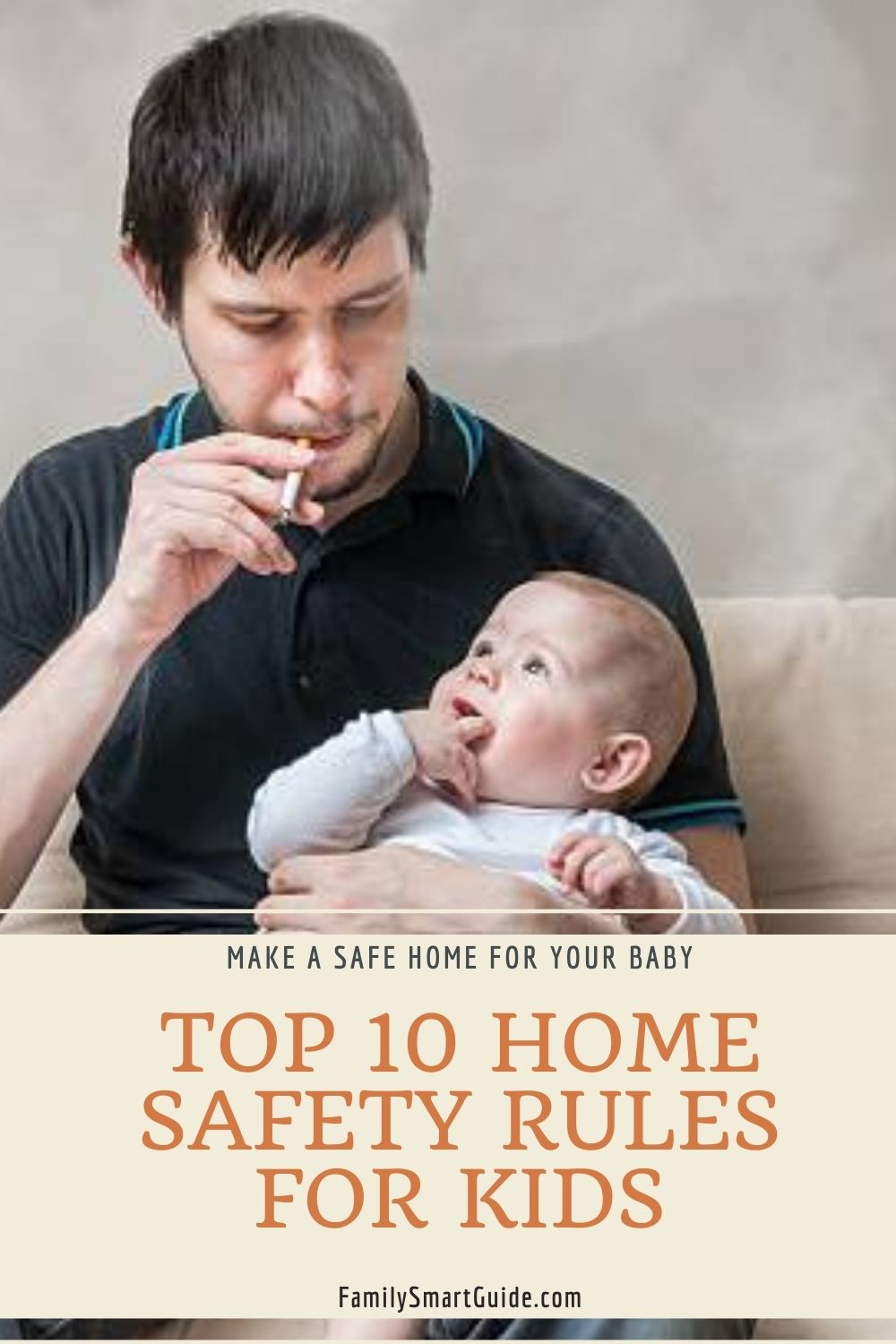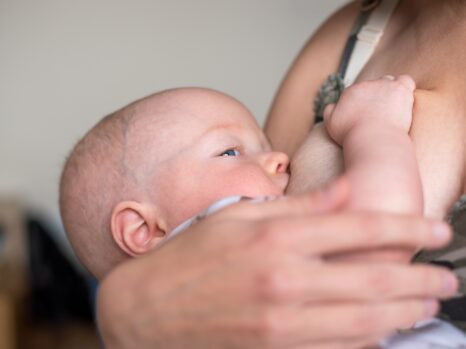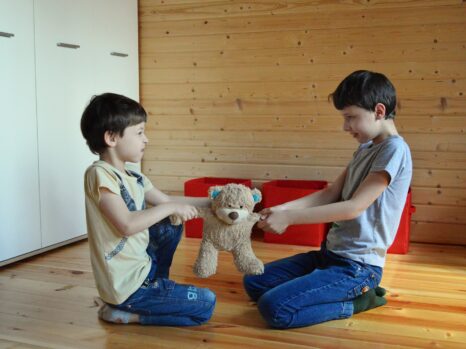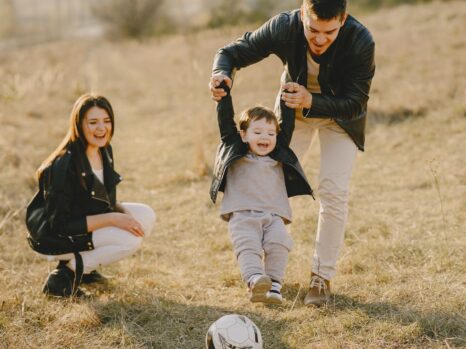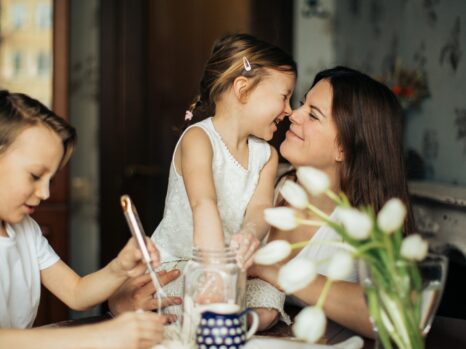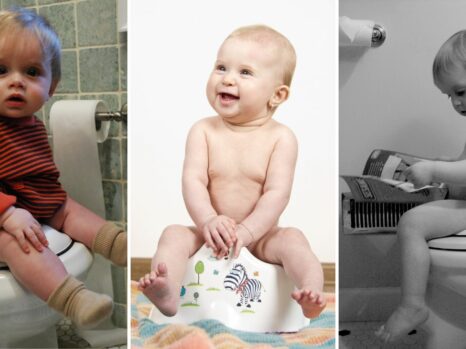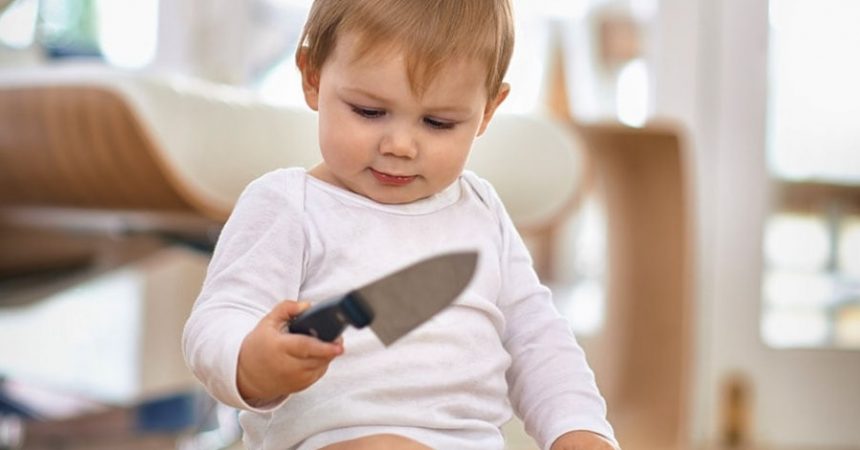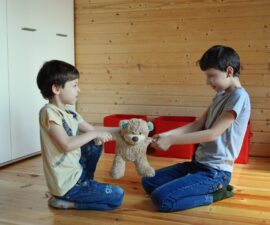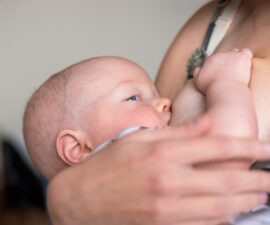Home is where kids learn and grow, the place where they find love and care, most importantly explore the world around them.
Besides, a home is the safest place for a child to play and moving around.
However, according to the Home Safety Council, almost 20 million injuries and 20 thousand deaths resulting from accidents that happened at home every year.
Press reports some possible accidents which are choking pool water, dropped from the staircases, beaten by other kids, and get bitten from a trusted home pet.
Luckily, home injuries can be avoidable through some knowledge and instruction.
Parents can take proactive actions so that they can make a child-friendly house for their kids and teach their kids some practical safety rules to prevent injuries.
Take a look at some of the safety rules that prevent your child from getting hurt.
10 Home Safety Rules for Kids
Protect Kids from Electrical Wires & Switches
As you know, electrical shocks cause deaths and injuries, and kids are affected by it a lot each year.
An electrical shock occurs when a kid touches electrical objects, i.e. unprotected wires, put a finger into multi-plugs, and touch switches with sweaty hands.
To prevent this issue here are some tips –
- Replace all the old switches or plugs with child-friendly electrical switches and covered sockets.
- Always clean floors when they are sweaty.
- Keep home appliances, hairdryer, phone changer away from waters.
- Teach your kids how to use electric devices properly.
- Repair all the damaged electrical items and hide them from kids.
- Keep electric appliances and hide electrical cords away from young kids.
- Always adjust wall switches and sockets higher than your younger kid’s height so that it is harder for him to touch them.
Never Leave a Kid Alone with Water
Kids love to play with water, but water can be dangerous for kids if you don’t protect them from using it properly.
Leaving them utterly unsupervised in your water pool or the bathtub is not a very smart decision.
Your unconscious choice may results in drowning, swallowing a vast amount of water, and hurting themselves.
Avoid leaving the pool full of water for a longer period of time, and don’t leave your kid alone even when you have an emergency.
In any big water containing tools like backyard pools, wading pools and hot tubs can be dangerous for a kid if they are alone inside it.
Make sure you have a fence around pools and try to use baby gates inside the house when you leave your baby alone.
Also, consider an alarming system outside the door or near the pool area, which notifies through sound on unpleasant occurrences.
Wading pools should be emptied after the end playtime, and hot tubs should be covered when they are not in use.
Hot water can also be a threat if it is not used correctly. To maintain safety, you need to lower the water heater setting to 49 degrees C to prevent from burning.
Always test the bathwater by hand to ensure that the water is comfortable for your baby before you put him inside the tub.
Keep Kid Safe from House Pets
Pets are a great companion for many households. However, according to Kaiser Permanente, more than 155 thousand children in the U.S. are bitten by pets every year, and most bites come from familiar pets that occurred at home.
Each pet has the potential to hurt or bite when it feels hungry, scared, threaten, and sick. Take a look at some of the tips that helps your baby from getting hurt by pets.
- Choose the right pet that can suit your family.
- Research on the pet’s breed, and if it is kids friendly, then permit your kid to play with it.
- Never leave your kid alone with pets.
- Teach your kid not to play physical games like hugging, wrestling, or touching.
- Teach kids not to disturb while they are eating meals.
- Take advice from a doctor when your pet acts strangely or feels sick.
- Do not try to snatch anything from toys, foods, or other favorite items.
- Give medicines and sprays to keep their aggression low.
- Always keep the pet well-fed and dust-free.
- Trim dog or cat nails without hurting them.
Tips on Dealing with Unfamiliar Pets:
- Ask the owner’s permission before touching or playing with someone else’s pet.
- Stay away or remain quiet from the place where you see warning signs.
- Try to maintain distance from unfamiliar pets.
Keep the Sleeping Area Free from Mess
In most of the houses, child’s rooms are filled with lots of pillows, toys, clothes, and a lot more.
In this case, kids don’t have much ability to think or control over their actions and try to grab those objects without any conscious mind and hurt themselves.
Besides, they buried under blankets, which lead them into suffocation and cut their body parts by touching sharp objects.
Always make sure blankets are securely attached to the bed and keep the sleeping area mess-free.
As the kid grows older, try to teach them about dangerous substances or materials that cause suffocation and encourage them to play in safer areas.
Hide All Chemical and Cleaning Material from Children
Kids love to grab exotic items. Many household products are possibly poisonous for kids if they swallowed.
To make the house childproof, from washing powder to perfume, all should be hidden from kids.
Besides, always try to lock those items into closed drawers so that the kids don’t find them easily. Don’t use containers to store as they might think of them as foods.
If you have storerooms, workshops, or any rooms that are not childproof, keep the room closed and install a security door lock or childproof lock to ensure their safety.
Always lock all the medicines on a cabinet after using them and put them higher position than your kids reach. Kids love to climb up so, carefully think about it too.
Kids love to play with cosmetics because they are exotic to watch, and most of them smell nice. So, never leave toiletries and cosmetics within easy reach.
Besides, kids love to copy their parents, and if they see their parents using products like hairdryer, nail polish, trimmer, shaving cream, perfume every day, they might try it when they are alone, so keeping them away will always be a smart decision.
Buy a First Aid Kit in case of any emergency. If an accident happens to your kid, don’t be late to call a nearby hospital or call an expert who will guide you to take proper steps and help you get the appropriate treatment.
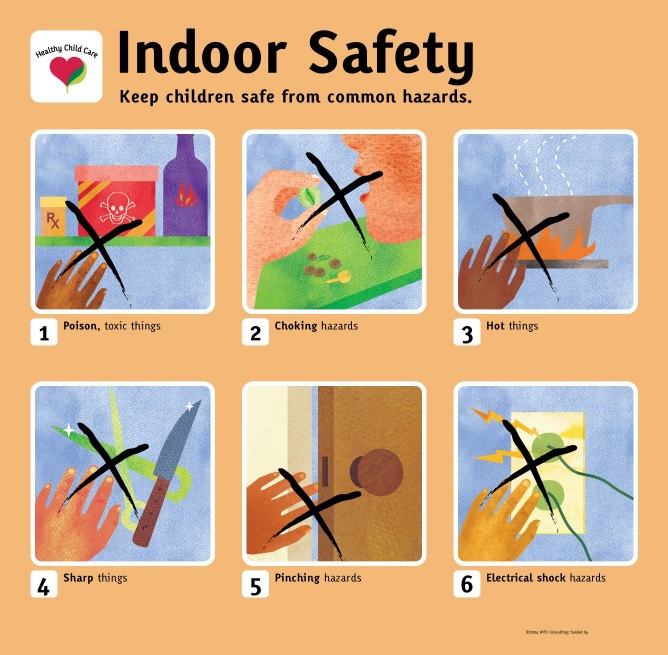
Unload Firearms and Locked Away
In the U.S., keeping guns at home is a common tendency. If you choose to have firearms in your home, it is your responsibility to keep them somewhere safe and unloaded as well as keep them far away from the kid’s reach.
Always make sure your firearm is not loaded with bullets and keep to gun safe case or locked cabinet where the kids rarely visit.
It is essential to talk about guns with your little one even though kids are not familiar with those items but always make sure they know what is firearm is and advise them to avoid touching those items when they come into contact with a gun in a relative’s or friend’s house.
Experts suggest teaching children some gun safety at an early age. Educate them to make a safer response when they see guns and advise them not to use weapons after getting influenced by their friends.
Keep Tiny Items and Foods Out of Reach
Kids love to grab something that seems interesting to them and try to swallow those objects without any understanding of whether they are harmful or not.
Every year thousands of kids die or injured when they are unable to breathe because of the food and tiny objects block their breathing system, cause choking, and even death sometimes.
Most choking deaths occur with food items, so always cut your child’s meal into small sizes so that foods can be easily swallowed.
Kids are at high risk of choking small candies, popcorn, beans, nuts, and large size bread so avoid those foods while feeding or make them small pieces.
The small household items like buttons, coins, small jewelry, tiny ping pong ball are stored away from kids to avoid accidents.
Always select medium-sized non-sharped toys so that kids can’t get hurt from them. Check toy labeling to see the warning signs, whether they are safe for small kids or not.
If your kids love to check your handbags without permission, avoid keeping small things such as coins, medicines, cosmetics, small knives, and many items that might harm your little one.
Door locks, Secure Windows, Block Staircases
Fall from staircases is one of the most common accidents that kids face each year, and taking some small precautions can prevent this serious problem.
The injuries can be severe when the height of the staircases is much higher, so be aware of the height.
Never let your kid sits on the high chairs and beds without safety rails to ensure their safety, clear the stairways and clutter-free, use baby gates to block their access on stairs.
Many Injuries occurred to toddlers and preschool children falling from unsecured windows. To prevent injuries, keep the windows locked, and use curtains to block the easy access.
To avoid an accident, discourage them from playing near windows. Don’t display anything that could potentially attract children, or they might climb for it.
Use door lock so that kids can’t go outside of the front door; it a smart practice to avoid getting hurt from outside danger.
Install A Smoke Alarm
The U.S. Fire Administration reported that two-third of the home fire kills kid under 5-year-old occur in homes that didn’t have a fire alarm installed.
When fire breaks out occur, it generates heat, deadly gas, and smoke, so you have less time to go outside of the house.
Families can increase their possibilities to survive by installing a smoke alarm, and following some steps will help you survive. Those steps are given below –
- Install a smoke alarm on each floor, especially near the kitchen.
- Make sure your kid is familiar with the sound of the smoke alarm.
- Make an escape plan and discussed it with family members about it.
- Train your kids on how to go outside when they see the fire.
- Check the smoke alarm each month or two and check their batteries.
Be Prepared with Emergency Kits
No matter how well prepared you are on childproofing your home or try to prevent the accident, it might happen eventually without your fault.
So, be prepared with all the emergency supplies in advance with always be a smart move to make. To help your kid safe, you should do those things which are –
- Purchase a First Aid Kit in advance for emergency usage.
- Have a clear knowledge about the nearby hospital.
- Keep important contact numbers in your phones such as your pediatrician, nearby hospital, poison control, a neighbor and nearby relative.
- When your kid grows older to remember your home address, teach him to call 911 in case of any emergency.
Final Words
A childproof house can prevent kids from many dangerous situations. We hope that you adjust your home according to our suggestions and make your home a sweet place for your kids.
